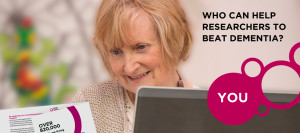The ‘GREAT’ Study
The GREAT study – Goal-oriented cognitive Rehabilitation in EArly sTage dementia looks at how talking to a therapist can really help people handle problems with their memory.
Aims of the Study
The GREAT trial is a large research study that looks at ways of helping people to live well with memory difficulties.
The research team wants to find out whether a form of treatment called ‘cognitive rehabilitation’ is beneficial for people who have attended a Memory Clinic, and for their friends and family members.
Cognitive rehabilitation involves working with a therapist who will make weekly visits over a number of weeks to try to help manage the impact of memory difficulties on daily life.
How Does It Work?
The volunteers who join this study will be split, randomly, into two groups – one receiving visits from the therapist in addition to their regular memory care, and one group not.
This helps researchers compare and contrast the results they receive.
Over a period of ten months, a therapist will visit the volunteer often to discuss living with memory issues, and how to manage the problems that can arise.
A researcher from the study will also be in touch with the volunteer and their study partner at the beginning of the study, then three and six months along to conduct an assessment of the volunteer’s progress.
At the end of the study, researchers will be able to compare the results of the two groups for a clear understanding of the affect of therapy on people living with the effects of memory problems.
Get Involved
‘Join dementia research’ helps people who are interested in taking part in dementia research connect with the staff on research studies throughout the UK.
For the GREAT study, the required participants are people with mild or moderate memory difficulties who have attended a memory clinic and received a diagnosis of Alzheimer’s disease, vascular dementia, or mixed Alzheimer’s disease and vascular dementia.
They need to be on a stable dose of a memory drug (if taken), to have no history of other significant neurological condition, and to have a family member or close friend who is also willing to participate in the study.
If you would like to find out more or get involved to help researchers try and beat dementia visit www.joindementiaresearch.nihr.ac.uk or call one of the charity helpline numbers:
Alzheimer Scotland: 0808 808 3 000
Alzheimer’s Research UK: 0300 1115111
Alzheimer’s Society: 0300 2221122

